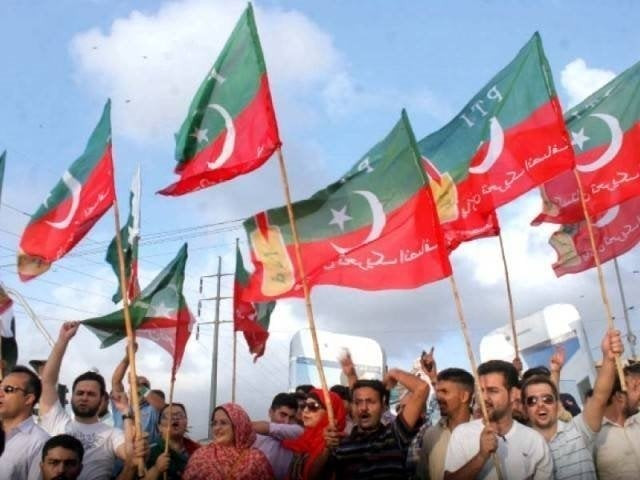
According to the manifesto, the party promised to provide 10 million jobs, five million low-cost housing units, recovering looted national wealth parked in offshore tax havens, building dams, including the Diamer-Bhasha dam, carving a province out of Punjab in the South Punjab region and broad-based accountability.
Titled ‘Road to New Pakistan’, PTI’s manifesto provided details of its proposed reforms in various sectors.
Jobs and housing
PTI promised to create as many as 10 million jobs in addition to building five million low-cost housing units over the next five years.
Jobs, it stated, would be created in key sectors, including small- and medium-scale enterprises, housing, health, education, green economy and tourism by primarily strengthening the labour market.
The party also pledged to develop between 1.5 and 2 million housing units in urban areas and 3 and 3.5 million units in rural areas for low-income groups. If voted into power, PTI promised to provide fiscal and regulatory incentives in this regard.
PTI to launch election manifesto on July 9
Transform governance
PTI also promised to indiscriminately pursue all major corruption scandals besides forming a special task force to launch a drive for recovering the looted national wealth parked in offshore tax havens.
It also pledged to bring accountability to the core of government by strengthening accountability institutions, including the National Accountability Bureau (NAB), Federal Investigation Agency (FIA), the Auditor-General’s office, Public Accounts Committee (PAC) and other parliamentary bodies.
The manifesto also talks in detail about a plan to review the NAB Ordinance of 1999 for removing lacunae such as the ‘voluntary return’ or ‘plea bargain’. PTI, it stated, would support the chairman NAB to conduct organizational reforms focused on ‘people, processes, and systems’.
PTI, the manifesto stated, would replicate the KP’s model of local government and the KP Police Act across the country for empowering people at the grassroots level and depoliticising the police.
“Public outreach to police will be made easier through new and enhanced policing apps, SMS systems, online FIRs and call centres,” it stated.
Reforms, it stated, would be introduced in civil and criminal justice systems, ensuring quick justice and removing procedural delays.
The party stated that it intended to transform the civil service into a merit-based, depoliticised cadre of professionals, institutionalising e-governance practices in public administration.
Through effective implementation of Right to Information laws, the culture of secretary will be abolished and access to government actions opened up for public scrutiny.
PTI also promised freedom of the press, stating it would develop state-run media organisations autonomous with their own boards of governors, closely following the BBC model.
Major parties snub school education in manifestos
Strengthening the federation
The party announced that it would reach out to all Baloch leaders, including dissident groups, and especially the youth, by ensuring them political and economic empowerment and including the local population in CPEC projects and the Gwadar’s development.
Special development funds would be allocated for consolidating Fata’s integration into K-P, it stated.
Under its ‘Mega Development Plan’, three per cent of the federal divisible pool would be allocated for Fata on annual basis.
The party also promised to create a province in the South Punjab region, initiate a poverty alleviation drive in Pakistan’s poorest districts, political and socio-economic empowerment of Gilgit-Baltistan, and transforming Karachi into a vibrant competitive megacity through large-scale reforms in governance and with the provision of public services such as housing, mass transit, water and sanitation and protection to life and property.
PTI also promised to ensure the social and religious rights of minorities, their places of worship, property and institutions as laid down in the Constitution besides promoting gender parity.
It stated that PTI would ensure voting rights to the overseas Pakistanis.
Inclusive economic growth
Reforms, the party stated, would be brought about in the FBR to broaden the tax net through a robust tax policy, efficient tax administration structure and effective enforcement mechanism.
To ensure this, FBR’s autonomy would be increased by reducing the influence of the ministry of finance. Sustainable initiatives would be initiated to reduce taxes on businesses, simplifying tax assessment rules for corporations and small businesses, improve audits to identify potential taxpayers for audit, publish names of non-compliant debtors and strongly pursue large tax evaders, and crack down on corrupt practices promoting tax evasion.
Land records will be digitised and property registration process would be automated. Court orders linked with property cases would also be digitised to reduce fiduciary risk to investors.
PTI announced that it would turnaround state-owned enterprises (SOEs) by creating a wealth fund, aggressive depoliticisation and through effective performance management of capable and autonomous leadership.
To overcome energy challenges, the manifesto maintained that the next PTI government would complete electrification of rural areas, solve the issue of circular debt through reducing transmission and distribution losses.
PTI will turnaround the tourism industry by improving Pakistan’s image abroad and increase this sector’s direct contribution to GDP.
Agriculture, water and social services
Promising numerous packages for farmers, PTI’s manifesto stated that its government would work to enhance farmer’s profitability and boost this sector’s growth rate, optimise existing subsidy programmes, reduce input costs, transform agriculture produce markets, improve access to finance, and mechanisation, and incentivise value-addition for exports.
The manifesto also insisted that the party would build dams and strengthen the ministry of water resources. It also promised to expedite the construction of the Diamer-Bhasha and other dams.
The ‘Healthcare for All’ programme will ensure universal health coverage and enhance the focus on primary care while upgrading secondary & tertiary facilities, while Sehat Insaf Card programme will be introduced across the country.
Similarly, PTI pledged to introduce the most ambitious education agenda in Pakistan’s history, spanning reforms in primary, secondary, tertiary, vocational, and special education.
The manifesto also promised to set up a National Commission for Education Standards.
National security
PTI government will focus on territorial integrity and sovereignty, socioeconomic development, the resolution of the Kashmir dispute and protection of Pakistani citizens wherever they may happen to be.
The party says it will introduce structural reforms in the ministry of foreign affairs.
PTI, the manifesto insisted, would focus on expanding the existing strategic partnership with China and other allies in the region, including the newly-emerging cooperation with Russia. With the US, reciprocity and mutuality of interest will be the determinants of our relationship, the party said. For internal security, a National Security Organisation will be established.

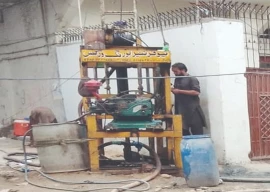
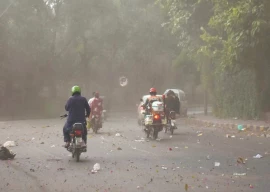
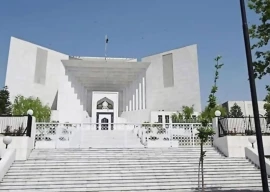
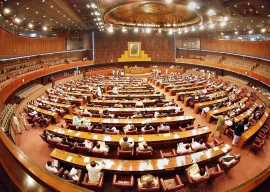

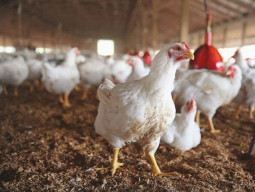

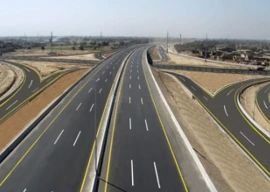





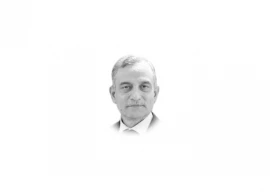



COMMENTS
Comments are moderated and generally will be posted if they are on-topic and not abusive.
For more information, please see our Comments FAQ